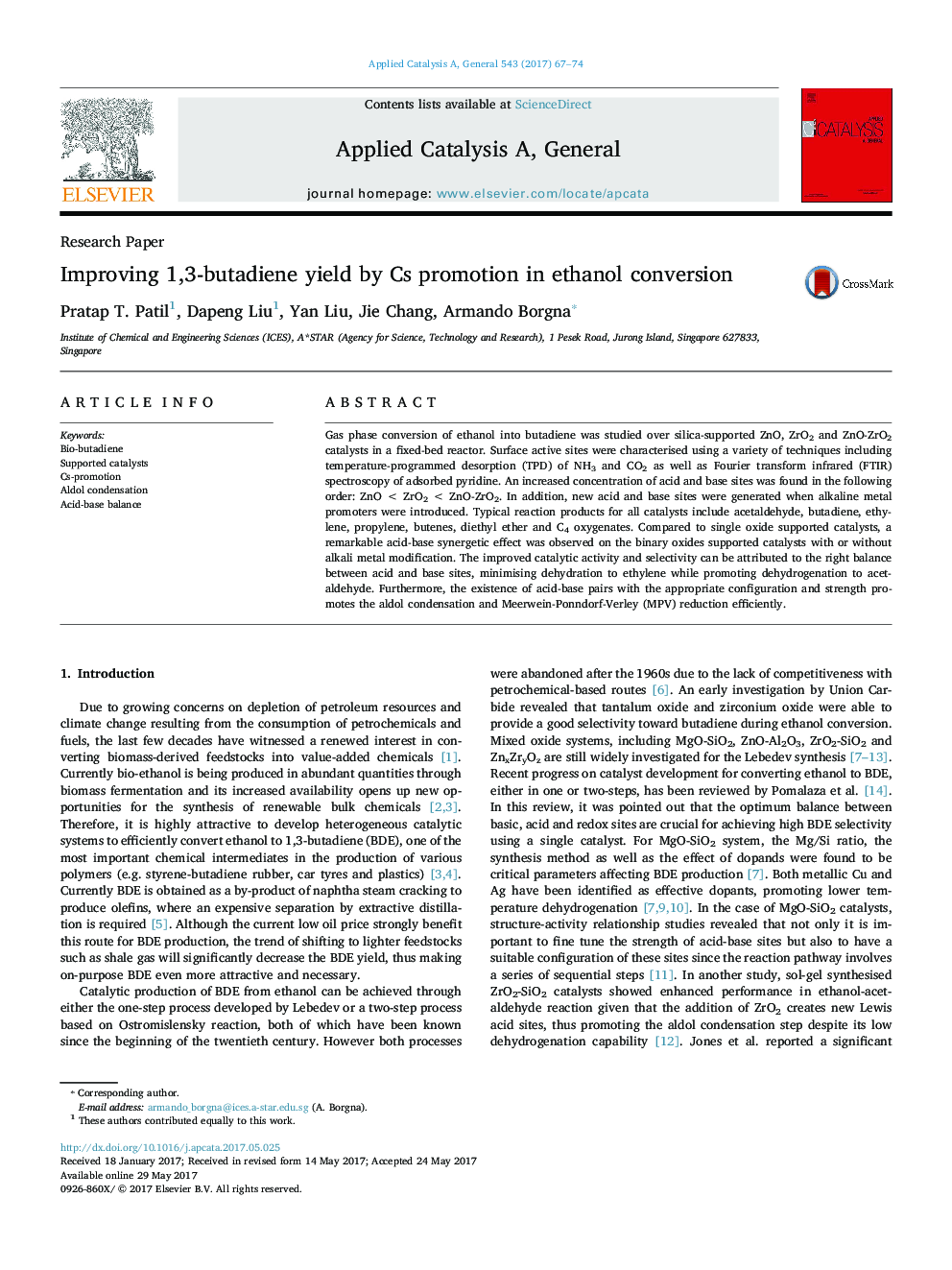| Article ID | Journal | Published Year | Pages | File Type |
|---|---|---|---|---|
| 4755530 | Applied Catalysis A: General | 2017 | 8 Pages |
â¢Alkali promotion inhibits ethanol dehydration to ethylene.â¢Only Cs promotion provides the appropriate balance of acid-base pairs to carry out the condensation step effectively.â¢Cs is the most promising alkali-metal promoter.â¢A single-pass 1,3-butadiene yield of 54.6% can be obtained over 0.5Cs2O-1ZnO-5ZrO2/SiO2 Catalyst.
Gas phase conversion of ethanol into butadiene was studied over silica-supported ZnO, ZrO2 and ZnO-ZrO2 catalysts in a fixed-bed reactor. Surface active sites were characterised using a variety of techniques including temperature-programmed desorption (TPD) of NH3 and CO2 as well as Fourier transform infrared (FTIR) spectroscopy of adsorbed pyridine. An increased concentration of acid and base sites was found in the following order: ZnOÂ <Â ZrO2Â <Â ZnO-ZrO2. In addition, new acid and base sites were generated when alkaline metal promoters were introduced. Typical reaction products for all catalysts include acetaldehyde, butadiene, ethylene, propylene, butenes, diethyl ether and C4 oxygenates. Compared to single oxide supported catalysts, a remarkable acid-base synergetic effect was observed on the binary oxides supported catalysts with or without alkali metal modification. The improved catalytic activity and selectivity can be attributed to the right balance between acid and base sites, minimising dehydration to ethylene while promoting dehydrogenation to acetaldehyde. Furthermore, the existence of acid-base pairs with the appropriate configuration and strength promotes the aldol condensation and Meerwein-Ponndorf-Verley (MPV) reduction efficiently.
Graphical abstractDownload high-res image (92KB)Download full-size image
